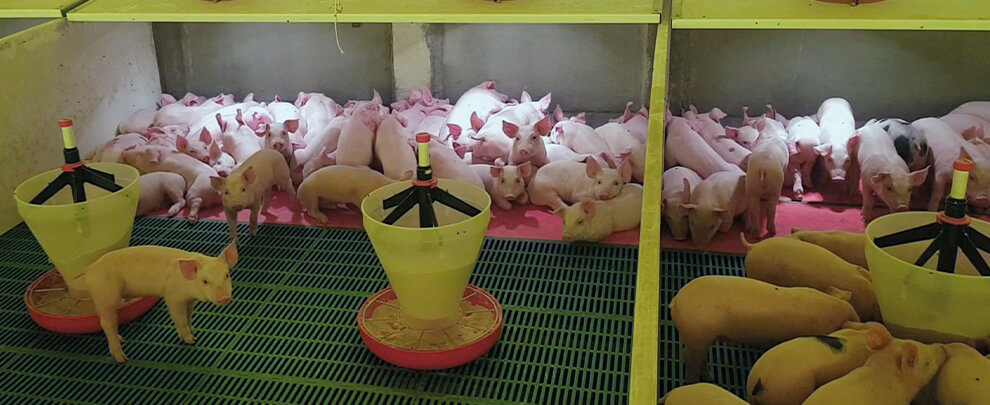Blog
Blog

Brazil, the world’s fourth-largest pork producer
27th February 2024 - News
Brazil has positioned itself as the fourth-largest producer of pork in the world and one of the leading exporters. This has been possible thanks to the constant growth that the Brazilian pork sector has experienced over the last decades with the modernisation of breeding practices, investments in new production systems, and adoption of new technologies on farms. All this has made it possible expand into international markets, and increase the national demand for this food. In addition, the sector has opted to invest in genetic improvements to improve meat quality. All this has meant a significant advance in traceability and quality, allowing Brazilian products to compete more in the global market.
Production
In Brazil, 43 million registered pigs are raised on 30,000 farms, mainly in the south and southeast of the country. These areas account for two-thirds of the country’s total pork production. Most pig farms are integrated into a system that closely links farmers with meat processors, allowing for strict control of quality standards and animal welfare.
During 2022, the activity of the Brazilian pork sector was marked by factors such as the significant increase in production costs and price volatility. However, pork production showed considerable growth. According to data from the Brazilian Institute of Geography and Statistics, in 2022, pork production stood at 5.2 million metric tons. This value represent an increase of 5.2%, compared to the previous year.
Market
Despite the slight drop in pork exports in Brazil during 2021, throughout 2022, this activity managed to consolidate. According to USDA data, in the first half of 2023, Brazil exported up to 806,500 tons of pork to 90 countries. Despite the drop in Chinese demand, the Asian giant remains one of Brazil’s primary customers, as it imported up to 310,900 tonnes of Brazilian pork in the first six months of 2023. Regarding value, other destinations have been Hong Kong, the Philippines, Chile and Singapore. Exports are expected to grow 7% in 2024 thanks to factors such as pork availability and the more significant share of Brazilian pork in international markets.
On the other hand, in 2022, imports reached 9,760 tons. Without data for 2023, the USDA forecasts that the figure will remain stable this year and next. France, Italy, Portugal and Spain are central exporting countries to Brazil.
Consumption
Among the different animal proteins, pork remains the third choice among the Brazilian population, beef is the favourite, and chicken occupies the second position. One of the reasons can be found in the price of pork, which is even higher than that of other foods, such as chicken.
In addition to this factor, which continues to be one of the main determining factors when buying, there are others, such as the seasonality of the product. In this sense, consumers tend to increase their pork consumption during Christmas. With all this, Brazil’s per capita pork consumption increased dramatically in 2022, contributing to higher apparent consumption. This one reached 4.07 million tonnes (Mt), an increase of 7.3% compared to 2021 (3.79 Mt), while per capita consumption was estimated at 19.5 kg/capita.
To promote consumption and continue to grow, the Brazilian pork industry has intensified its efforts in recent years with market campaigns focused on encouraging pork consumption among the population.
Future
USDA forecasts that Brazilian pork production will increase by 5% during 2024. Factors such as increased external demand, access to new markets and improved economic conditions in the country are expected to contribute to consolidating this growth.
In this context of growth, the Brazilian pork sector will continue to face significant challenges, such as the threat posed by diseases such as African swine fever, classical swine fever, and PRRS. In this sense, farms must adopt all possible biosecurity and control measures to protect their pig herd and meat exports since international health regulations are becoming stricter.
In addition, environmental sustainability poses another challenge, as increasing pork production can significantly impact the environment if not managed properly. For this reason, Brazilian farms are already working on sustainable practices that allow livestock waste management and reduce emissions, although there is still a long way to go.






